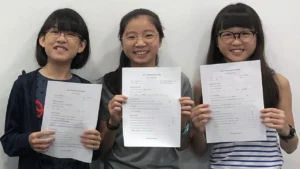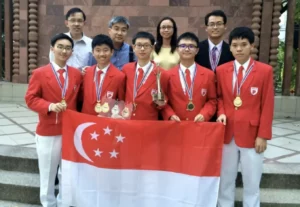In this article, we first introduce the Gifted Education Programme (GEP) and dive deeper into what the learning jourey of a GEP student is like. Then, we will take you through the 3-step process to determine whether or not your child is likely suitable for the GEP. Click the steps below to skip to the relevant segments.
Step 1: Understanding the MOE’s GEP Curriculum
Step 2: Does Your Child Show Interest In Math?
Step 3: Does Your Child Find School Math Boring?
Step 4: Can Your Child Solve These Questions?
The Gifted Education Programme (GEP) is a highly selective academic programme designed to identify the top 1% of students with outstanding intelligence. It was started in 1984 in order to have a differentiated curriculum for gifted students and create an environment suitable for teaching gifted students. Since then it has caused much anxiety in parents who have many queries about this program.
The GEP curriculum is an enriched curriculum designed to meet the needs of GEP students. The enriched curriculum covers the same content areas as those in the mainstream, but is extended in breadth and depth. Catering to the needs of intellectually gifted children, this programme exposes them to non-routine questions that require keen logical reasoning, pattern spotting and visualisation skills. GEP students will also learn skills for independent inquiry and are encouraged to do explorations on self-selected areas of interest.
We are committed to ensuring that the potential of each intellectually gifted student is recognised, nurtured and developed.
Ministry of Education (Singapore)
Step 1: Math Enrichment Singapore – MOE’s GEP Curriculum
The GEP curriculum focuses on math enrichment and not acceleration. Students are differentiated in the areas of Content, Process, Product and Learning. Let me explain:
Content Enrichment
The GEP Preparation curriculum extends beyond what is taught in mainstream school in terms of depth and breadth. It covers more advanced topics and requires students to think out of the box to make connections between multiple disciplines. This encourages them to investigate real-life problems and form highly developed critical thinking and analytical skills. It promotes them to examine affective issues in various areas of study.
Process Enrichment
Emphasis is placed on the development of higher order thinking skills (Critical Thinking). As such, questions tested within the GEP programme includes non-routine, Math Olympiad style questions, that involve logical reasoning, pattern-spotting and visualisation skills. This encourages discovery and experential learning in students. Open-ended problem solving is another critical part of the curriculum as it teaches research skills for independent study. A wide variety of teaching approaches are applied to cater to many different learning styles. Small group activities and projects are common for interactive learning and exchange of ideas.
Product Enrichment
Traditionally, students are expected to work on written assignments and are graded based on them. In the GEP, students are encouraged to come up with presentations, videos, models and more forms of submissions. This provides for creative expression which allows students to think out of the box. It also promotes authentic learning, in which students learn through the personal experience of undergoing a process from start to finish.
Learning Environment
In order for Math Enrichment Singapore students to blossom, a learner-centred environment which is stimulating and supportive is put in place. This is an environment where risk-taking and freedom of thought is supported. As a result, an out-of-school learning experience is provided. For example, students are taken on excursions where they visit parks or go on math trails. Mentorship programmes and attachments in collaboration with tertiary institutions are also included as part of the out-of-school extension programme.
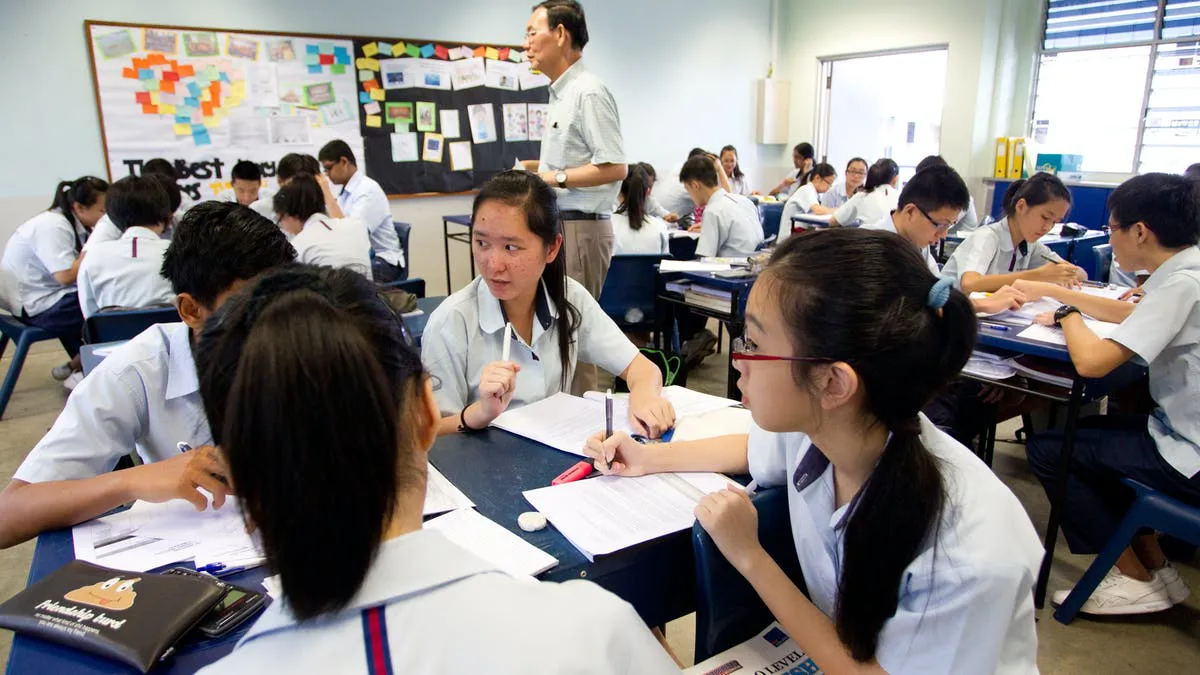
Step 2: Interest In Maths
After speaking with hundreds of parents whose children either won medals in Math Olympaid competitions or have qualified for the GEP, we have determined ‘Interest in Maths’ to be a very reliable early indicator of whether or not your child is gifted.
Do you often hear your child saying any these things?
“Mummy, did you know that 5 is a prime number?” “I’m searching Google for Math questions…”
“7 x 7 = 49, 7 x 8 = 56, 7 x 9 = 64, …” “1, 1, 2, 3, 5, 8 13, 21, …”
If you have a child who is constantly interested in numbers, number patterns, geometric patterns, shapes or any content math-related, there is a high likelihood you have a gifted child on your hands.
Gifted children typically behave in a certain manner. They are often caught doing assessment books, watching math on YouTube or researching numbers on Google! They love talking about math and numbers. So if you observe your child exhibiting such behaviour and also exceeding expectations in school, he or she is most likely suitable for the Math Erichment Singapore programme.
In Jan 2019, Coach Leo addressed the cohort of the Southeast Asian Mathematical Olympiad during his opening speech at Suntec City Convention Centre, expressing his amazement at the young age of the competitors across Southeast Asian countries.

He spoke to a crowd of more than 1,500 students and parents. Present that day were students aged 7 to 18 but it was noted that at least 40% of those present were aged 9 and below. This goes to show that gifted students start displaying their abilities from a tender age and parents just have to be observant enough to look for the signs.
Step 3: Does Your Child Find School Math Boring?
At Tutify Education, we train hundreds of students each year. Both GEP and Math Olympiad students may be classified under the category of ‘Mathematically Gifted’. When our coach walks into a GEP or Math Olympiad class, the environment is lively, noisy and uplifting. These students obviously have a lot to discuss! It is clear to see how much they enjoy attending class.
Why then do they find school math boring?
Take it this way: If you were forced to read a book you had already read multiple times, will you still find it interesting? Our math geniuses know their stuff. To them, math comes naturally. So, naturally, when they are forced to sit through a math lesson in school that teaches the questions they already know, how then could they find it interesting?
It is very common for parents to call us and share that their child is getting bored with maths at school. They come to us seeking a Math Enrichment Singapore class that is suitable for their child. This is because these parents are feeling anxious that their child might start to lose interest in the subject due to the lack of stimulation in school.
Boredom is simply the absence of an interesting perspective.
Brandon A. Trean
GEP and Math Olympiad Training courses are different to the maths taught in school. Yes, we cover the topics required by MOE as part of the primary maths syllabus but we dive deeper and cover a wider range of problems. This is why such courses fall under the category of being a maths enrichment class for primary school.
Each week, we conduct our maths enrichement class (i.e. GEP and Olympiad) in such a way that develops students’ logical reasoning, pattern-spotting and visualisation skills. We have a strong a proven teaching methodology that has helped them develop the skills they need to qualify for the GEP, even if they may not be the Top 1% among their peers. Students are exposed to topics that are covered by the school syllabus but require a higher level of understanding to solve.
BOREDOM CHECKLIST:
- Your Child Says He or She Is Bored With Math Class In School
- Your Child Seems To Be Losing Interest In Maths As A Subject
- Your Child Is Able To Complete Assessment Books Beyond His or Her Academic Level
If you find that your child is satisfies any one of the above criterions, take action and start exposing them to maths enrichment classes that can satisfy their hunger for knowledge.
Step 4: Can Your Child Solve These Questions?
Here are a couple of logical reasoning, pattern-spotting and visualisation problems that are commonly tested in the GEP Screening Test. While being able to solve these questions is a good start, it does not mean that students who are unable to solve these questions will not qualify for the GEP.
After helping hundreds of students qualify for the GEP, we come from a place of experience when we say that being gifted is not just about having a certain set of problem-solving skills, it is about the ability to quickly and effectively learn new skills. Therefore, whether or not your child is suitable for the GEP depends less on whether they can solve these questions but more on whether or not they are:
- interested in non-routine questions and
- able to quickly and effective master the techniques required to solve them.
Problem 1
Evaluate 3 + 5 + 7 + 9 + 11 + 13 + 15 + 17.
Problem 2
Find the missing numbers in the sequence below:
2, 3, 5, 8, 13, 21, ( ), ( ), …
Problem 3
Find the missing number.

Problem 4
Each pattern below is made up of small coloured triangles. How many coloured triangles are needed for Pattern 6?
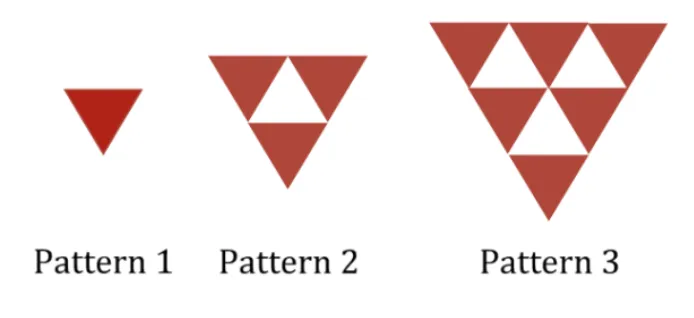
Problem 5
The numbers 1 to 7 are arranged in the circles in such a way that the sum of the 3 numbers on each line is 14. What is the value of 𝑚?
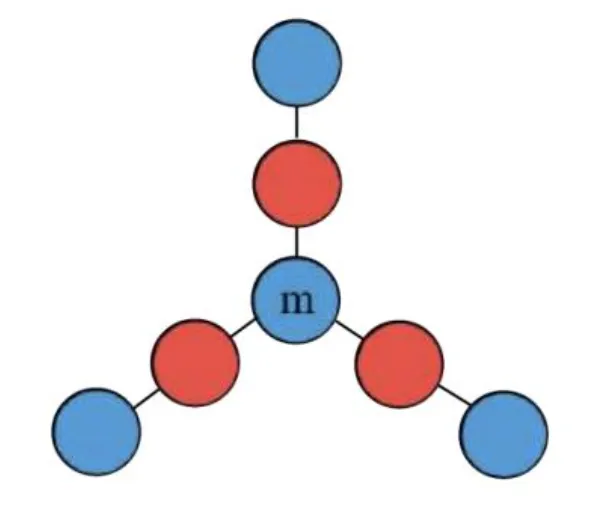
Problem 6
Find the value of the flower.
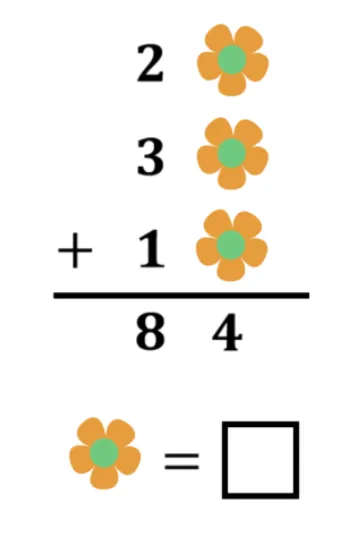
Problem 7
The deer, zebra and turtle decided to have a race. The deer did not come in first. The turtle was neither first nor last to finish the race. Which animal was the fastest?

Problem 8
Observe the pattern and write the correct answers in the brackets provided.
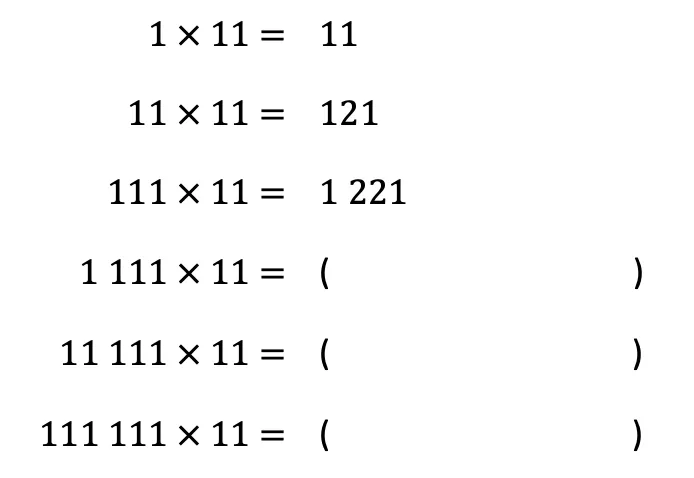
Problem 9
Find the value of each symbol.
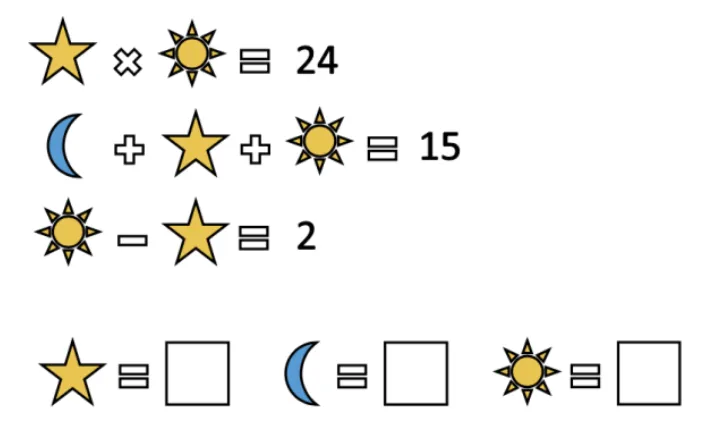
Problem 10
Which drawing is missing from the pattern below?
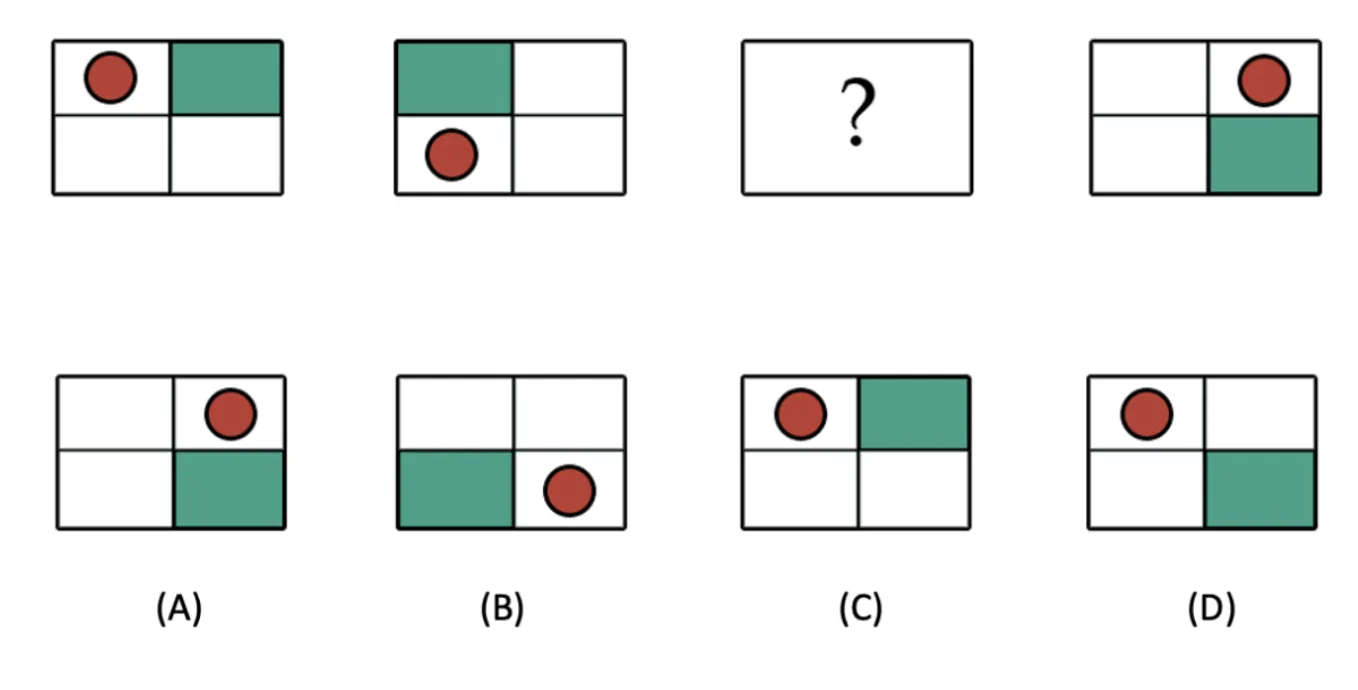
Answers
| Problem 1 | Problem 2 | Problem 3 | Problem 4 | Problem 5 |
|---|---|---|---|---|
| 80 | 34, 55 | 10 | 21 | 7 |
| Problem 6 | Problem 7 | Problem 8 | Problem 9 | Problem 10 |
|---|---|---|---|---|
| 8 | Zebra | (12,221) (122,221) (1,222,221) | 4, 5, 6 | B |
Conclusion
Knowing your way around the GEP Selection process, equipping your child with the knowledge and tools required to pass the screening tests and finding the right training approach makes a big difference in whether or not your child qualifies for the GEP.
Students today need to have critical and inventive thinking skills to thrive in a complex world, where jobs now require non-routine analytical and interactive tasks.
Senior Minister of State for Education Indranee Rajah
Be it for the purposes of GEP selection or simply to increase your child’s interest in the subject, there are only benefits to joining our Maths Enrichment Class. At Tutify Education, at least 70% of our students have cleared Round 1 of the Screening Test and a further 40% went on to get selected into the Gifted Education Programme. 100% of them who have gone through our GEP Preparation course have easily attained top grades in their school Mathematics exam. Deep conceptual understand and problem-solving tools helps students make connections and think outside the box – something that MOE demands of them as part of the 21st Century Core Competencies.
So to all of you parents who are exploring this opportunity, we say, “Unleash the Genius in Your Child!”


